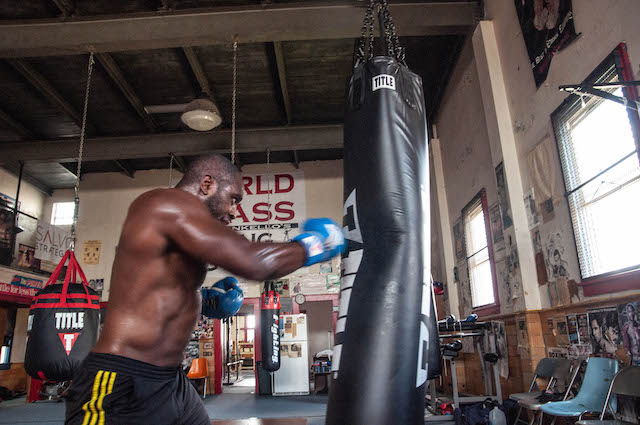What’s the point in being likable if people will just hate you for it?
There’s a popular idea that you can’t make everyone happy. And in my experience, that’s mostly true. No matter what you learn about how to be likeable, it won’t matter because some people just won’t be a fan of yours.
The longer you live, you’ll inevitably come across someone who, for whatever reason, just isn’t your biggest fan. That’s okay.
But where most people get this saying wrong is believing that you’ll automatically make enemies when being your authentic self because you can’t please everyone. They don’t believe likeability and authenticity go hand in hand.
If you’ve felt this way, you might even think “why bother?”
Here’s why: authenticity is a requirement for strong relationships and a prerequisite for likeability. Just because everyone won’t like you doesn’t mean you need to make it easy for them to dislike you.
Also, being a likable person is one of life’s social currency.
For example, people go out of their way to help you when they like you. You get more opportunities and offers when people like you. Even likeable doctors get sued less often. And, if you’re like me and grew up in a rough area, likeability can keep you from getting your ass kicked.
There’s just absolutely no downside to being likeable.
So if you’re looking for a way to be more likeable while also not caring what other people think, or “selling out,” keep reading. This article is for you.
1. Develop anti-fragility
There are tons of simple ways to increase your likeability—being more confident is one of the most important. Though it isn’t simple in its development, the concept is: the more you like and trust yourself, the more others will like and trust you.
I’ve put this first because it will make the other strategies easier. You’ll also find that getting good at any one thing has the added benefit of increasing your confidence.
The concept of anti-fragility means that your entire life isn’t derailed by a single setback. So learning that others may have a problem with you, or learning you have a shortcoming in your skillset isn’t a catastrophic blow to your ego.
2. Set boundaries for your mental health
We’re back to another key piece of information that’s often missing in popular advice that teaches you how to be likeable.
Social psychology points to people’s need to belong. Feeling included and part of the tribe has been a key to human survival. Loneliness has actually been declared as deadly as obesity and cigarette smoking.
You learn to choose your battles by setting boundaries and having personal standards. You know the things you won’t accept from others because you’ve likely experienced it already.
When you have a set of personal standards, two decisions are immediately made for you:
- You eliminate people that might force you to act in a way that makes you unlikeable. Following personal standards for how you treat others, yourself, and your surroundings will automatically protect you from many destructive influences.
- You make it easier to like yourself, thus making it easier for other people to like you. When you eliminate people and avoid situations that don’t live up to the standards you’ve set for yourself, you’re also getting rid of influences that no longer align with your path.
Make a list of things that are not okay for others to do or say to you. For example, never date or befriend someone that belittles you. Write down your vision of the ideal person you’d like to become and use it to set your personal standards.
Writing this down will help to solidify the image in your head and make it more likely that you’ll do what’s necessary to become your ideal self. A major key to likability is actually enforcing your personal standards when they’re breached.
3. Listen actively to connect
Listening is an underrated art that builds bonds. When you demonstrate engaged, active listening, people feel respected and valued. This fosters likability and connection.
- Give your full attention when someone is speaking to you. Avoid multitasking or letting your gaze wander. Lean in and make eye contact.
- Paraphrase parts of what they share to show understanding. For example, “It sounds like you felt very frustrated when your boss criticised your work.”
- Ask thoughtful follow-up questions to encourage them to share more. Dig deeper with open-ended questions like “What drew you to that career?”
- Allow natural pauses in the conversation for them to elaborate. Don’t rush to fill silences.
- Limit interruptions and let them finish speaking before you respond. Being patient shows care.
- Avoid judgmental language. Comments like “Why would you do that?” can seem critical. Maintain an open, understanding tone.
Mastering empathetic, attentive listening demonstrates regard for others. It is a key pathway to developing mutual understanding and likeability. Make people feel truly heard.
4. Improve your body language
Studies show that 70-90% of our communication is non-verbal.
The way you hold and present yourself sends signals that impact likability. Monitor your body language and make positive adjustments:
- Smile and make eye contact when greeting someone. Smiles release feel-good chemicals and signal warmth.
- Use open posture and lean in slightly when listening. This demonstrates interest and engagement. Keep arms uncrossed.
- Mirror the other person’s body language subtly. If they lean forward, do the same. Matching body rhythm builds rapport.
- Nod along and make small verbal affirmatives like “uh huh” as they speak. This reassures them you are actively listening.
- Use welcoming gestures like extending your hand for a handshake or lightly touching the other person’s arm. Be respectful of personal space.
- Avoid distracting movements like fidgeting. And definitely keep your phone away. Looking at your phone signals disinterest.
- Relax your facial muscles. A tense expression reads as sternness or disapproval, undermining likability.
The way you hold and conduct yourself impacts how others perceive you. Developing welcoming, engaged body language is crucial for leaving positive first impressions that set the stage for likability.
5. Don’t be judgmental
No one likes to be told what they should or shouldn’t be doing, especially from a complete stranger. It makes people feel isolated, ostracized, and alone. Forbes found that not being judgmental is also one of the most important things others are attracted to in likeable people. It’s second only to a sense of humor.
Judgment is when you take the input of the world and swish it around in your brain then measure it up against your own personal views and experiences. You want to control others and that’s just not the reality of the world.
When I say “don’t be judgmental,” I’m not saying don’t have standards of acceptability. What I’m saying is respect that others have a different path and perspective from yours. And that doesn’t necessarily make them wrong. In fact, when you feel you might be judging someone else’s behavior, use it as a chance to learn more about yourself and your perceived limits/boundaries.
When people feel like you understand how they see the world, they’re more receptive to you.
You don’t have to agree or empathize with their perspective, but you need to show that you actually get their perspective.
You can’t ever come out and say, “I understand and acknowledge your perspective” or any variation of that. That just screams disingenuous.
Learn to treat everyone like they have something to teach. Be genuinely curious about them.
You can do this by:
- Saying please and thank you and having generally good manners
- Offering genuine compliments
- Asking for advice and taking it (when appropriate)
Behaving respectfully towards others makes you hard to dislike. If you can do nothing else, being a more respectful person is probably the single biggest lever you can pull in becoming likable.
It also just makes you a better person and is great for your mental health as well.
Recap of 5 basic tips to make you more likeable
- Start working on your confidence
- Create your personal manifesto outlining your boundaries and ideal vision of yourself
- Listen to others, ask follow-up questions, and share yourself
- Monitor your body language
- Don’t expect others to see the world exactly how you do
Following these five things will make it easy for other people to like you. At the very least, it’s going to make it very difficult for people to dislike you.
Remember: there is no disadvantage to being likeable and no advantage to being unlikeable.
The rest is up to you.




